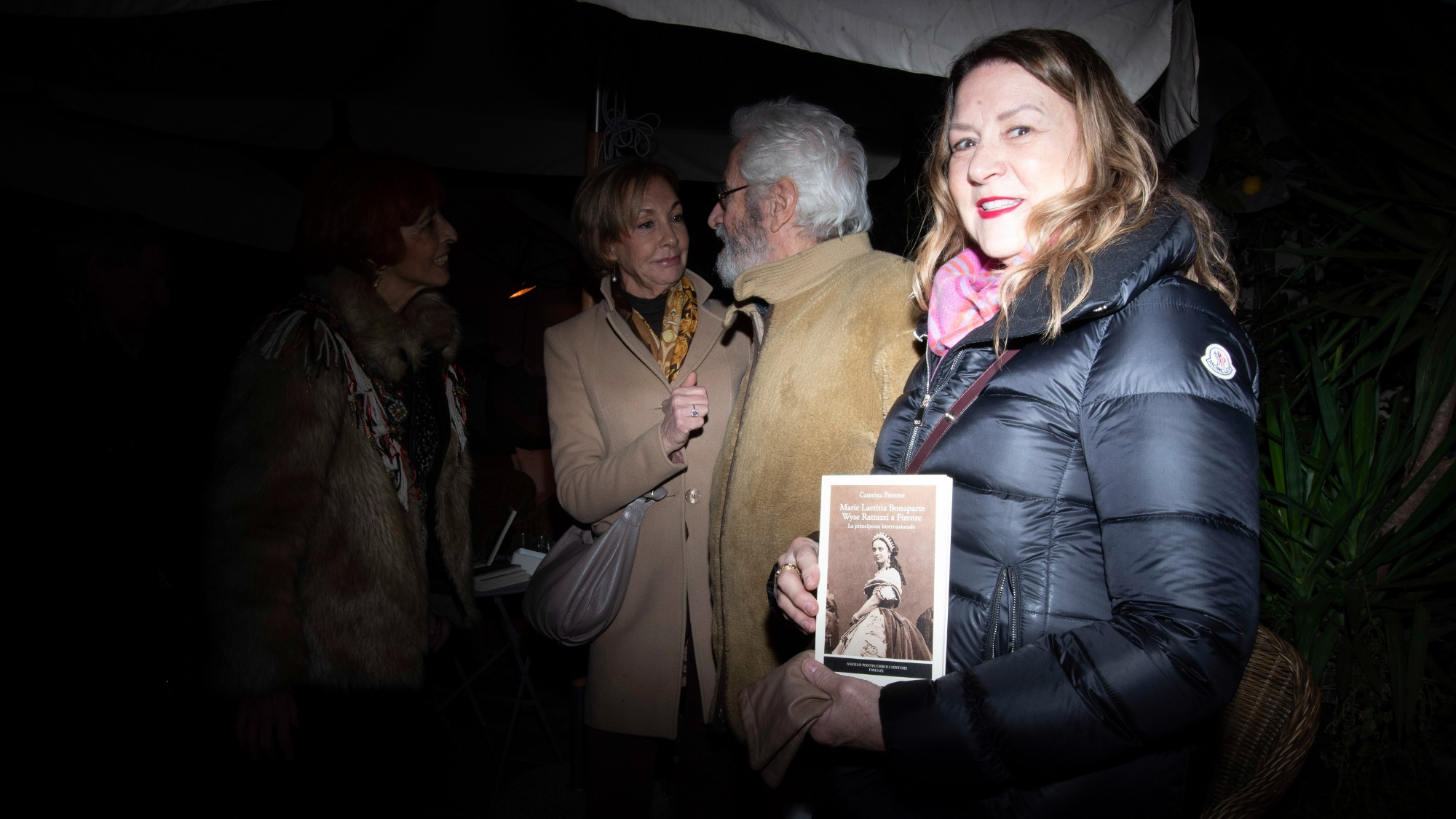Students at AUF are uncovering the hidden impacts of the global food system and discovering what it means to eat sustainably.

Historical Scandal: | Florence's Brief Moment as Capital
Caterina Perrone sheds light on Florence's past through discussing her book in the Palazzi Community Center of Florence.
Written by Sophia Koch, Special Project Experiential Learning in Journalism - Spring 2024
Located in the beautiful garden of Palazzi Community Center, in early February, Antonella Ciabatti hosted a captivating book presentation for “Marie Laetitia Bonaparte Wise Rattazzi a Firenze." Coordinated by The American University of Florence, the author, Caterina Perrone, was also present for the event. The readings were curated by Giovanni Vannucchi, Anita Fabbri, and Gabriella Becherelli. This was Perrone’s second presentation for her book, but her first time she had fellow writers and friends read the monologues to give voices to the characters. People of all ages showed up to hear the readings of various segments in her historical story.
For a brief moment in history, Florence was Italy's capital, which occurred from 1865-1870. The book captures Florence during this time, and the years that follow. Specifically following the political decisions of the newly titled city, the city’s changing urban structure, and the dramatic increase in population. In the first reading, Anita Fabbri and Gabriella Becherelli read a section describing the architectural structure development of Florence. Caterina Perrone wanted two voices to show the different points of views people voiced on the changes of the city. This allowed listeners to take in and devour the banter of the positive and negative thoughts the citizens had in the nineteenth century of the ever-changing city of Florence. To bring the reading and experience all together, projected in the background of the garden in the Palazzi Community Center, there were vintage photos of the city views and the book's characters so the audience could visualize what was being read.
Marie Laetitia, who is the protagonist of the book, moved from France to Italy after marrying an important politician, Urbano Rattazzi. Caterina Perrone says that Marie Laetitia had a significant impact on Florence and when she came to Italy, she thought of herself as intelligent and superior and she wanted the Florentines to listen to her knowledge about French values. She believed in the values of the French Revolution and shared that with the Florentines. “They refused her,” says Caterina Perrone. As many people dislike change and being told what to do or think, the Florentines did not accept Marie Laetitia or her beliefs. She was widely talked about because she had an “eccentric and histrionic behavior,” such as wearing revealing dresses at social events, resulting in gossip. She took that rage of not being accepted and wrote a pamphlet, in which she represented her feelings of Florence and the citizens, criticizing them as vulgar and dishonest people. This brings out the antagonist of the book, Emilia Peruzzi, who was Marie’s rival in the management of their salons. Although Marie Laetitia used fake names when writing about the citizens, the Florentines knew who each person was. Caterina Perrone says that she thinks everything Marie Laetitia said about the people was true since they recognized who each person was even though she used false names.
“I wrote a tale about this scandal,” says Caterina Perrone, “I was looking for a scandal and this was not so big of a scandal, but it was important at that moment.” Caterina Perrone became fascinated with this story when she was writing a piece for “Florentine Writers Group,” jumpstarting her devotion to learning the history of nineteenth-century Florence. It only took Perrone four months to write her book, spending a lot of time in local libraries and researching through France’s online resources. She is amused when she gets to investigate different people; find out where they lived, what people said about them, and conceptualize each person. Caterina Perrone finds Marie Laetitia to have been a strong and fierce woman. Someone who liked to be the center of the stage. All based on the fact that she was Napoleon's niece. Parts of the author’s book are fiction to add a bit more dramatics to the story, but she only adds in monologues that she believes Marie Laetitia would say. “You imagine how this woman was,” says Caterina Perrone, “what will she say?”
Not many foreigners or students know the rich history of Florence during the period that it was the capital. Caterina Perrone says that the younger generation should come to understand and read her book because of the importance the ancient Renaissance structure had in helping recognize the current layout of the city. It is truly a book of historical importance with scandal: a significant and enticing read.
Latest news
The Terrarium: How to Build and Maintain It
Tiziano Codiferro’s terrarium master class provides an insight into how to start your own small scale garden.
Tiny Florence: A Celebration of the City’s Neighborhoods Through Photography
Tiny Florence showcases student snapshots capturing everyday beauty in Florence’s four neighborhoods—inviting viewers to see the city anew.
